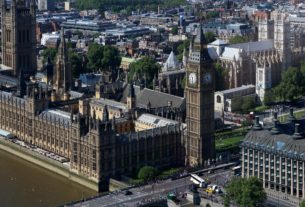*Support NewsLeaf.com by becoming a Patron today by clicking here.*
A YouTube ban is likely to come into force in Pakistan as multiple media outlets report that the country’s Supreme Court is hinting at banning YouTube. While I have the utmost respect for Pakistan’s judiciary, the honourable judges and the country’s Constitution, this decision will prove to be incredibly illogical and extremely damaging to the country’s economy, the entertainment sector, its image and for its tourism industry.
Although the honourable judges have their reasons for banning YouTube, the negatives of such a ban would overwhelmingly outweigh its positives. And this is a sentiment that many citizens, including myself, are allowed to express because of our right to freedom of speech and freedom of expression.
In fact, an honourable Supreme Court justice fully acknowledged that it’s the right of individuals to ‘raise questions’. “Our salaries are paid from the money of the people, they have the right to raise questions on our decisions and our performance”, said the honourable Justice Qazi Muhammad Amin – according to The Express Tribune’s Hasnaat Malik.
Therefore, here are just some of the reasons why YouTube should not be banned in the country which are related to people’s livelihoods, the country’s entertainment and tourism industry and Pakistan’s image in the wider world.
Many people in the country earn their wages directly from YouTube; they are able to live their lives and afford basic necessities because they earn via YouTube’s advertisement revenues. This includes Quran reciters uploading their beautiful recitations, talented chefs sharing their mouthwatering and tasty recipes, teachers uploading valuable educational content, singers publishing their heartfelt music and comedians making the nation laugh.
All of these are people with families to feed. These are the hard working and talented people that would be hit hardest by a potential YouTube ban. Additionally, the country would be stripped of its creative sector, a sector that contributes vast sums of money to the national treasury.
It is not just individuals and families who benefit from YouTube. Big media houses, TV stations, film makers, drama producers, news channels would also be hit very hard. All of these are sectors that pay taxes, that pay their employees and contribute positively to society.
However, without this much needed revenue TV channels could cease to exist in the worst case scenario. This would have a pervasive knock on effect on society with joblessness rising and household plunging into poverty all over the country.
The negative effects won’t stop here. Such a ban would undoubtedly also impact Pakistan’s tourism sector, a sector which Prime Minister Imran Khan vowed to improve because of its potential to uplift the country’s economy and its standing in the world.
To showcase to the world that Pakistan is worth coming to for a family holiday or for exploration, one actually needs to proof that it will be worth the time and money. The best way to prove that is through visual content: to show the beauty, the wonder and the magic the country beholds. Even better is the fact that potential visitors can be persuaded to come to the country via YouTube, which probably one of the most popular application in the whole wide world.
Banning YouTube would undoubtedly be counterproductive to Prime Minister Imran Khan’s ambition of creating a healthy tourism sector.
Stepping aside from the material factors, there are also other reasons why banning YouTube would be problematic. It would ruin the country’s image, it would put a stain on the country’s rich cultural heritage – something that no patriotic Pakistan would ever want.
Banning this app will make the country seem like it’s against freedom of speech and freedom of expression, this would undoubtedly also put a dot on the country’s human rights record as the need to express oneself is a fundamental human right.
Of course, I am not arguing that YouTube is perfect. It has many problems, which is why many Western countries are also looking for a way to regulate such digital services.
Nonetheless, banning it is certainly not the solution. It would cause far too much irreparable damage to the common people of Pakistan. Instead, the best way should be to work with other countries in finding a solution on how to remove content that may be judged questionable and obscene.
Also read:
- Here is what Pakistanis and Indians should definitely learn from BTS
- The New European newspaper celebrates its Fourth Birthday
- “#PlantForPakistan”, urges Prime Minister Imran Khan
______________________________________________________________________________

Raza Hussain is an award-winning writer: the Extra-Mile winner of the News Quest Young Reporter Scheme 2014 and the recipient of the ‘Talent for Writing’ certificate by Young Writers. He was also awarded the ‘Prize for Outstanding achievement is Sociology‘. Twitter: @M_Raza5 | Instagram: @M.Raza.H




